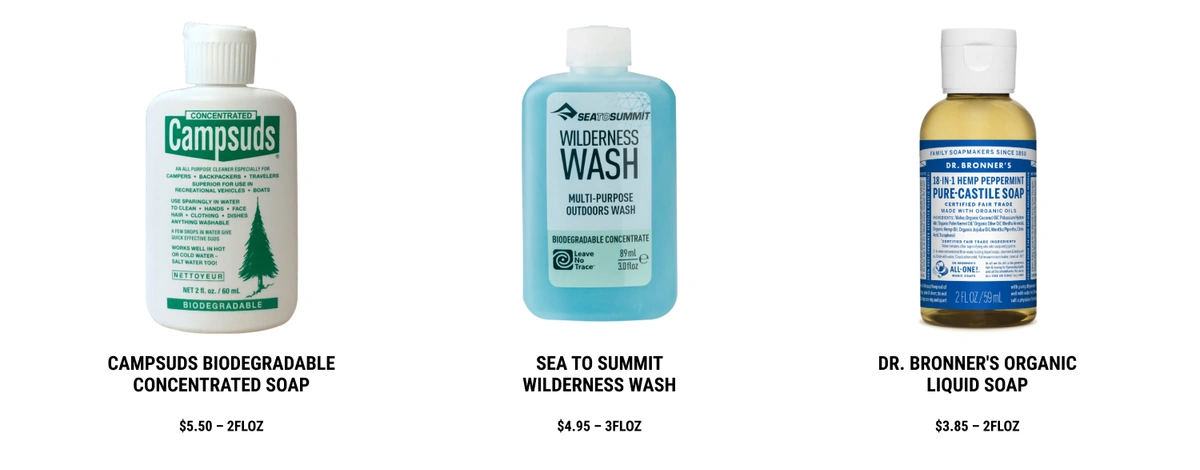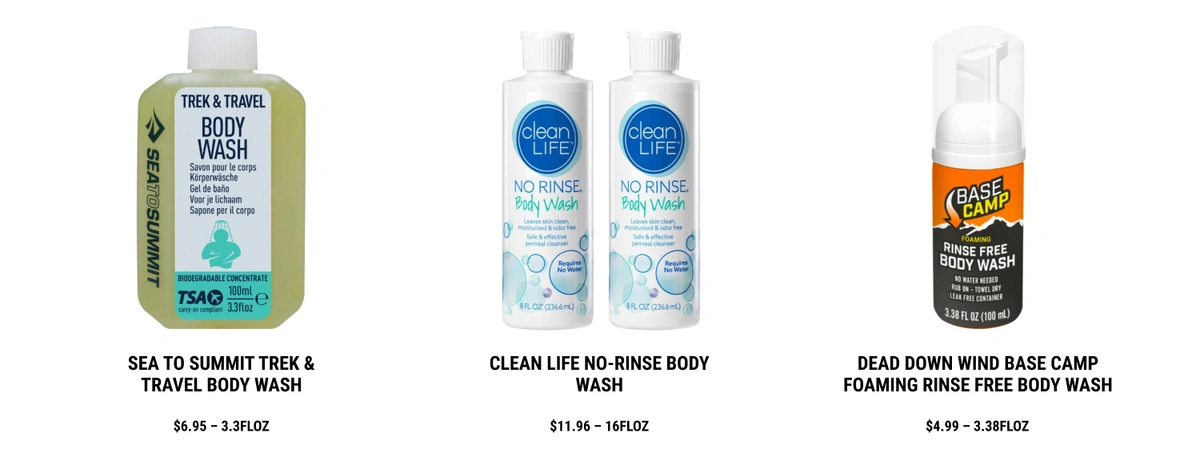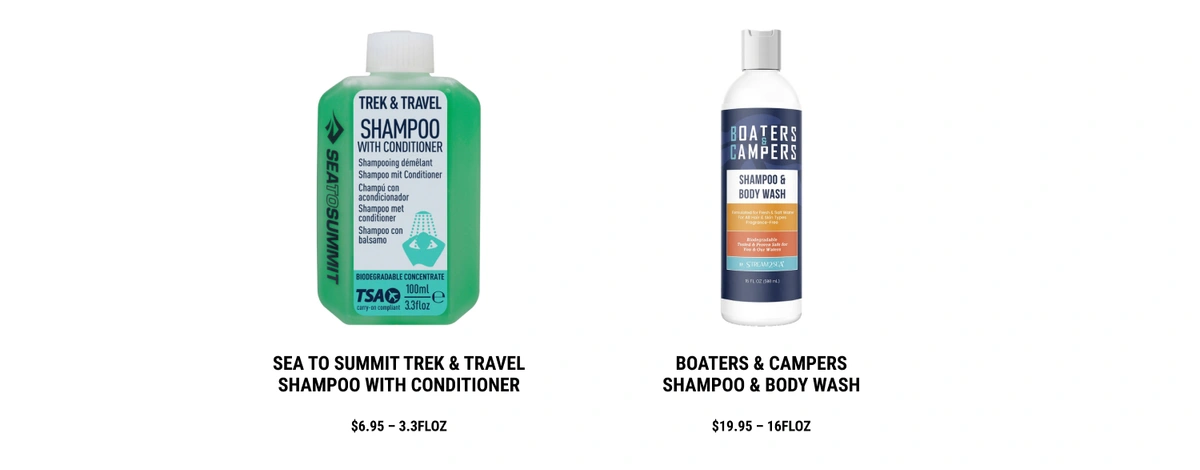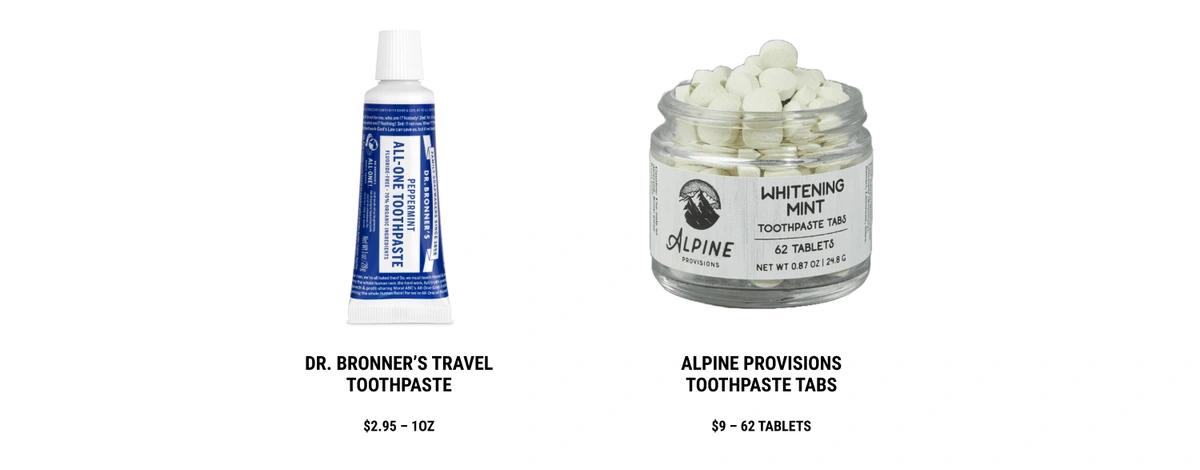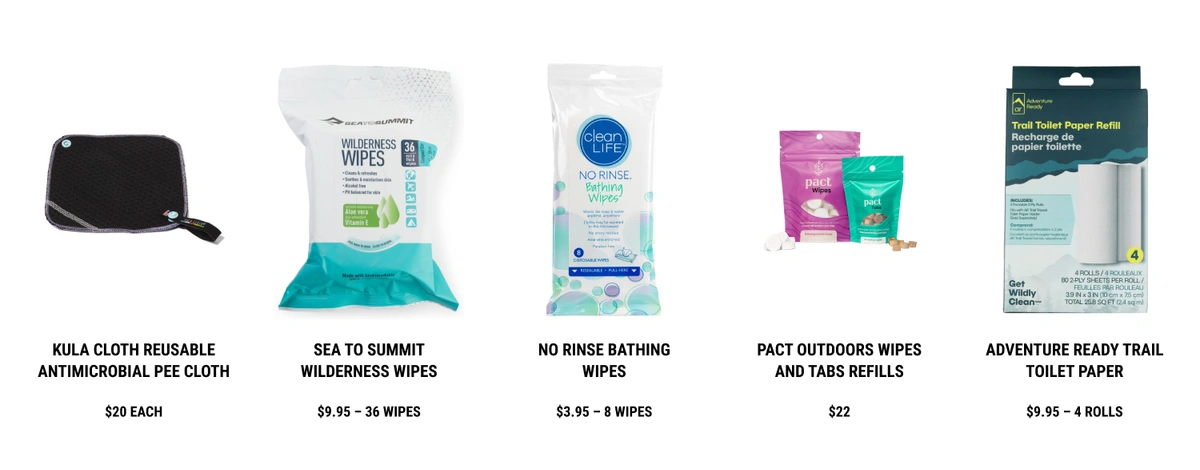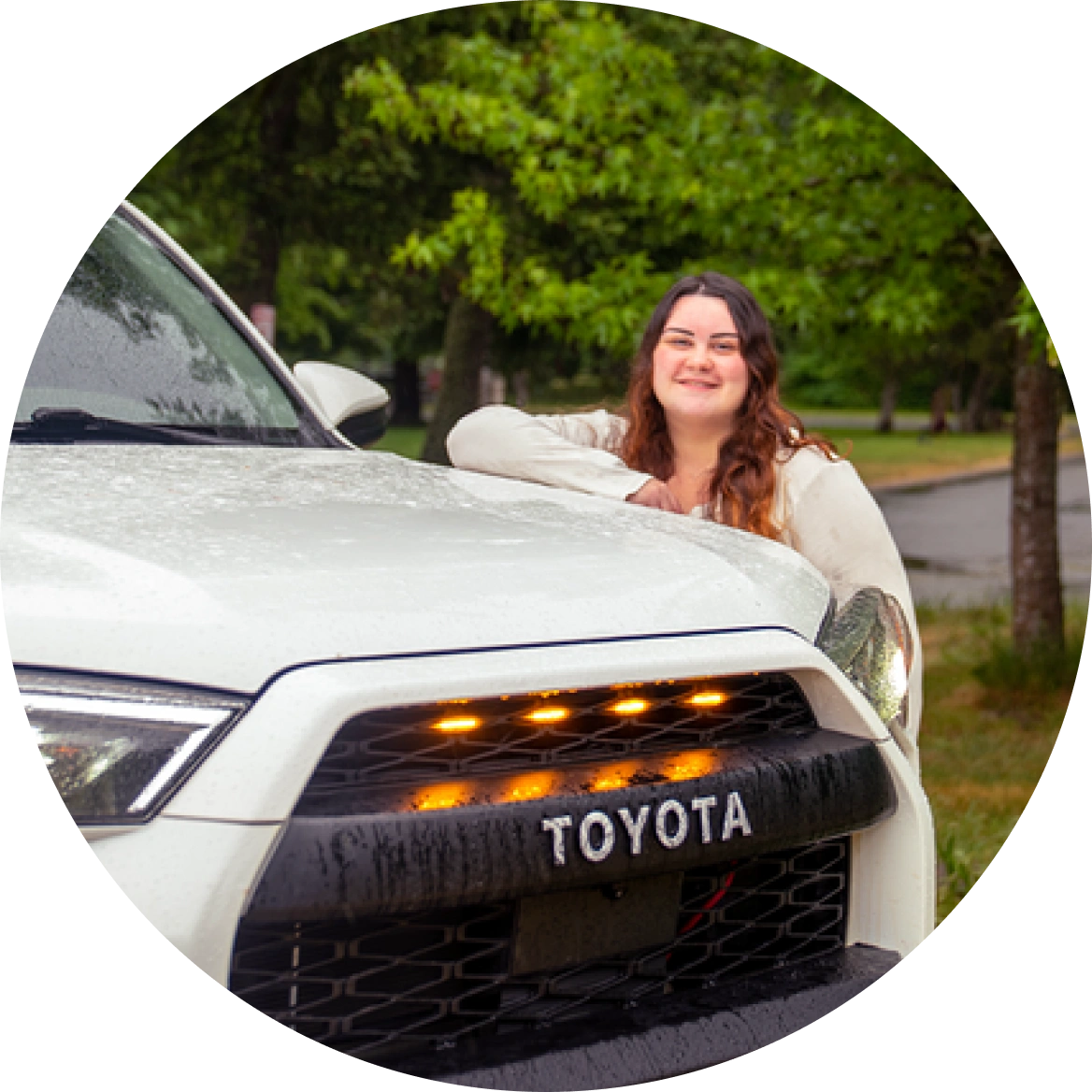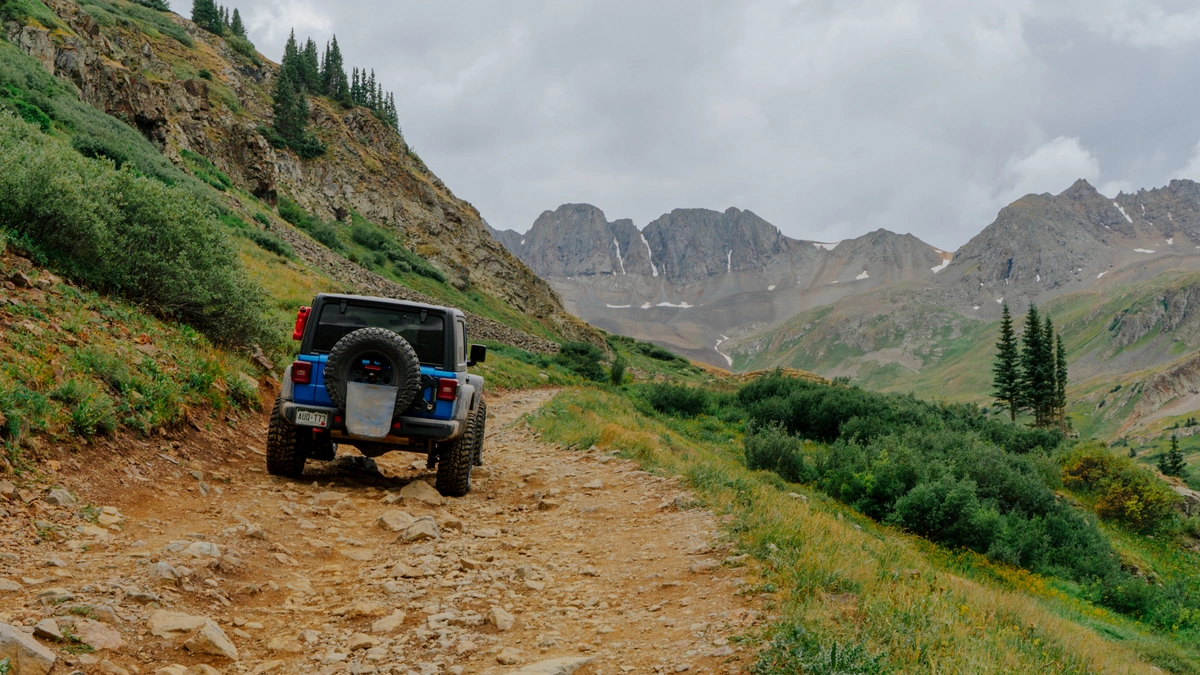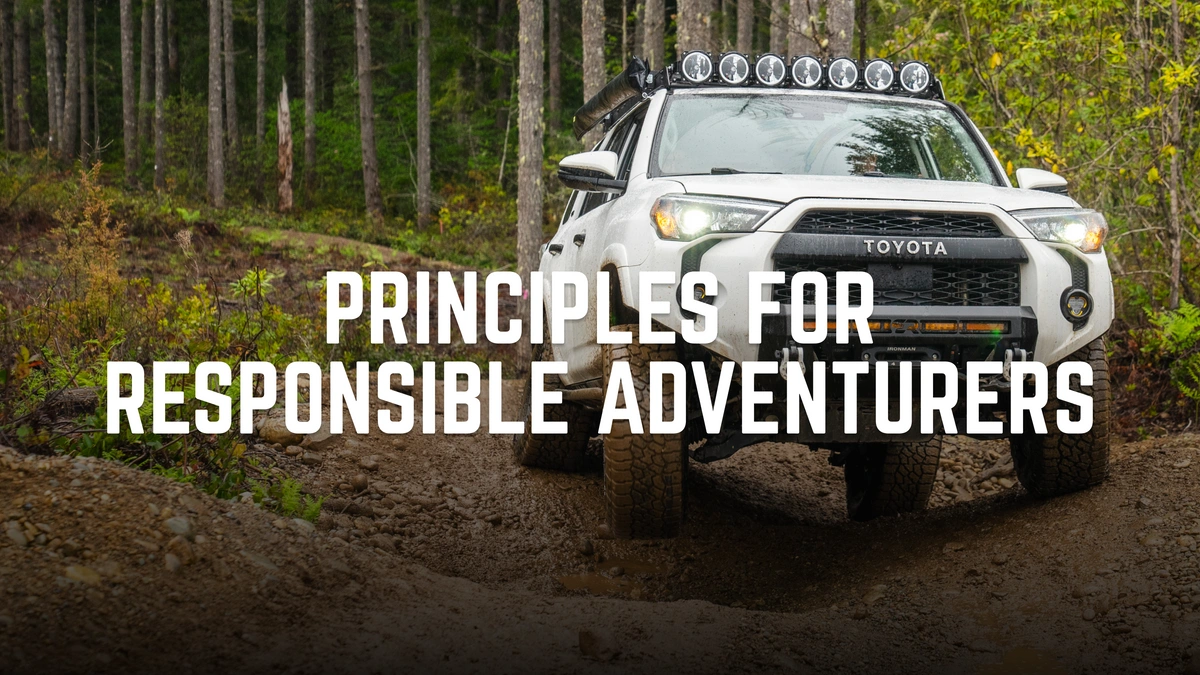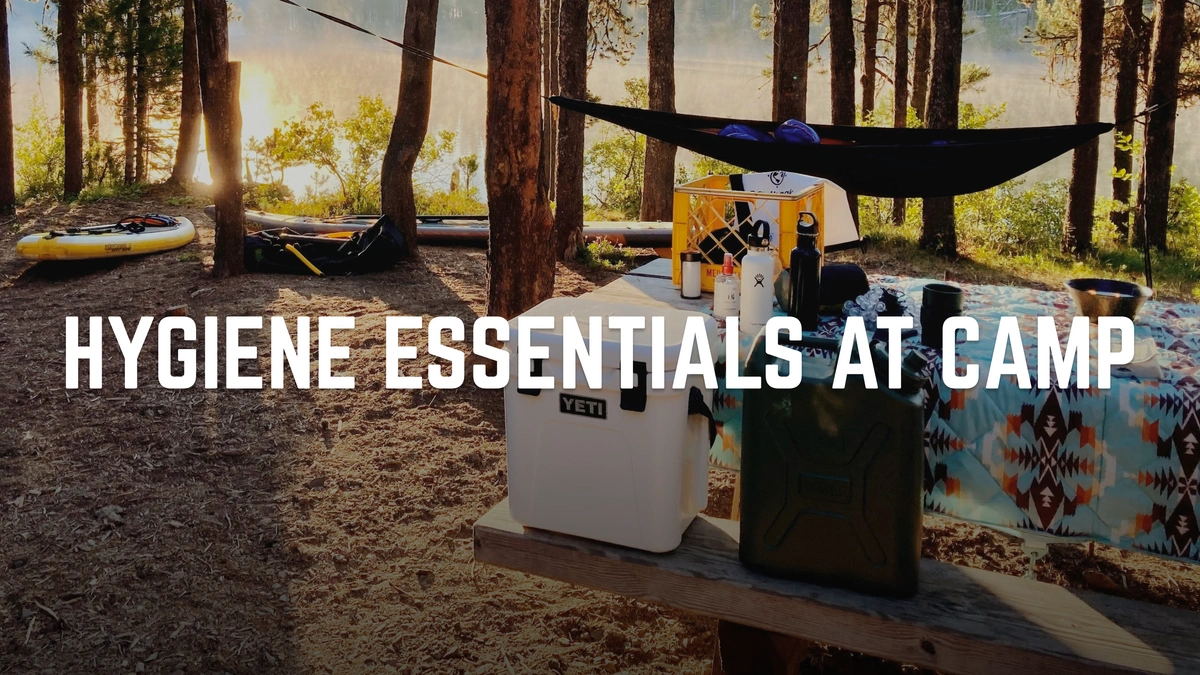
Guide to Hygiene Essentials at Camp
Camping offers a wonderful escape from the hustle and bustle of everyday life. It provides an opportunity to connect with nature and enjoy the great outdoors.
For some, having a cleanliness routine at camp is just as important as enjoying the outdoors. If you like to remain fresh and clean, it’s important to understand the differences between everyday products and those that can be safely used at camp.
In this blog post, we'll explore the different types of hygiene products that are necessary for camping, what to look for on product labels, and recommend some camp-safe products to help you stay fresh and clean on your next adventure.
Why Do You Need Different Types of Products for Camp?
When heading out to camp, you may find yourself needing a variety of products like dish soap, body wash, or mouthwash, to name a few. However, it's important to remember that your everyday products from home are likely not safe to use in the wilderness. But do you know why?
For starters, many commercial hygiene products contain chemicals that can harm the environment. Regular soap and shampoo can disrupt local ecosystems if washed into streams or lakes. Camping-specific products are often biodegradable and formulated to minimize environmental impact.
When camping, space, and weight are often at a premium. Bringing all your soaps and personal hygiene products from home will take up a lot of space and add significant weight. Instead, opting for smaller, more compact camp-safe hygiene products designed for travel is more practical. Many of these products are multi-use items, which can also save space.
Finally, did you know that some hygiene products can attract insects or wildlife due to their scent? Many camp-friendly products are unscented or lightly scented, which can reduce this risk.
What Should You be Looking for on the Label?
When choosing hygiene products for camping, paying attention to the labels can help you make informed decisions. Here are some key aspects to consider:
-
Biodegradability: Look for products labeled as biodegradable. These items break down naturally and reduce the environmental impact.
-
Ingredients: Check the list of ingredients for harmful chemicals. Avoid products with parabens, phthalates, and sulfates. Opt for those with natural, plant-based ingredients that are gentler on your skin and the environment.
-
Scent: While a pleasant fragrance can be nice, it's not always practical for camping.
-
Packaging: Eco-friendly packaging is another factor to consider. Products that come in recyclable or reusable containers help reduce waste. Additionally, sturdy, leak-proof packaging ensures that your products won’t spill and create a mess.
-
Multi-use Functionality: Versatile products can save space and weight. Look for items that serve multiple purposes, such as a combined body wash and shampoo or an all-in-one moisturizer with SPF.
Proper Use at Camp
The number one rule when camping is to ensure that all trash is packed out and disposed of properly. However, special care is needed when dealing with water and waste.
If you plan on washing anything at camp, never use soap directly in any body of water. Even biodegradable soaps can be harmful to aquatic life and possibly disrupt the ecosystem. Instead, water should be carried at least 200 feet away from the water source before washing.
When washing dishes after cooking, first remove any food particles and pack out the solids with your trash. To minimize impact, scatter the dirty water over a wide area at least 200 feet away from water sources, camping areas, or trails.
Choose biodegradable soaps and use them sparingly. Even biodegradable products need soil and microorganisms to break down properly, which is why they shouldn't be used directly in water sources.
For human waste, dig a hole 6-8 inches deep and at least 200 feet away from water, trails, and camp. When finished, cover the hole with soil and natural materials. If you're in an area where holes aren't allowed, use pack-out systems like portable toilets or waste bags designed for camping. Use toilet paper sparingly and pack it out with your trash.
Available Options:
If you’re looking for some alternatives to your most used products, here are some camp-friendly alternatives!
Dish Soap
If you’re planning on cooking at camp, you’ll probably want to get some soap to clean up your dishes, especially if you plan on using them a few times. Here are some popular alternatives to dish soaps that can be safely used at camp. They are also multi-purpose.
Body Wash
While camping is all about embracing the outdoors, many people still prefer to stay fresh and clean, especially if the trip lasts more than a few days. Whether you arrive at camp covered in mud or dirt and need a rinse or just want a quick freshen-up with water, having a small bottle of soap is essential.
Shampoo
While shampoo might not be essential for everyone, it is for some, so we wanted to provide options for you. Alternatively, you can use dry shampoo, but be careful to avoid getting it on plants or the ground.
Toothpaste
Toothpaste is another necessity. Like all of these other products, it must be changed to be safe for use outdoors. Here are a few options.
Wipes
You’ll have many different uses for wipes when you’re at camp. Of course, you can always try to use towels that you bring from home to minimize your waste, but for some, this may not be possible. Don’t forget a portable bidet is also a great option. Here are a few alternatives.
By choosing the right products designed specifically for camping, you can protect yourself, respect the environment, and make the most of your time in nature. When shopping for camp-safe hygiene items, prioritize biodegradability, natural ingredients, minimal scent, eco-friendly packaging, multi-use functionality, and effectiveness. With the right preparations, you can stay fresh, clean, and ready to enjoy all the adventures that await!
